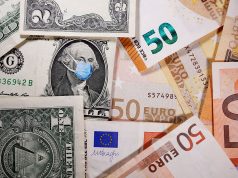BSP can lend more to gov’t under Bayanihan II
THE Bangko Sentral ng Pilipinas (BSP) is now allowed to lend more to the Treasury to boost its coffers for the coronavirus pandemic response under the newly signed Bayanihan to Recover as One (Bayanihan II) law.
Under Section 4 of Bayanihan II or Republic Act No. 11494, the BSP can provide additional direct provisional advances to the National Government “to finance expenditures authorized by law that will address and respond to the COVID-19 situation,” as long as this does not exceed 10% of the government’s average income for fiscal years 2017 to 2019.
This effectively increases the cap that the central bank may directly lend to the government to 30% from 20% of its average revenue under the New Central Bank Act, Bloomberg reported.
With Bayanihan II, the BSP can now lend the National Government up to P850 billion from the previous cap of P540 billion.
“We proposed the higher cap to enable the National Government to avail of the BSP facility to fund requirements against COVID-19 and pursue quick recovery. Bayanihan II is adequately covered by debt service savings and additional income,” National Treasurer Rosalia V. de Leon said in a Viber message to reporters.
These additional direct provisional advances can be availed of within two years from the Bayanihan II’s effectivity. President Rodrigo R. Duterte signed the Bayanihan II into law on Sept. 11.
The advances should also be settled within a year, although maturity can be extended for one more year if allowed by the Monetary Board.
In March, the BSP purchased P300 billion in government securities with zero interest from the Bureau of the Treasury (BTr) under a repurchase agreement which is set to mature this September.
Meanwhile, S&P Global Ratings noted the trend among emerging central banks, including the BSP, to assist the National Government’s response during the crisis through bond buying, saying this is not detrimental to credit ratings.
“We have not seen signs that increased government bond purchases have damaged central bank credibility in India, Indonesia, and the Philippines. Inflation and interest rates have not picked up in these economies, and exchange rate changes have been modest so far,” S&P said in a note sent to reporters on Monday.
August inflation eased to 2.4% from 2.5% in July, albeit quicker than the 1.7% seen the previous year. The BSP expects inflation to average 2.6% this year, well within the 2-4% target.
Meanwhile, the peso continues to hover around the P48-level in the recent weeks. It closed at P48.51 on Monday, appreciating by three centavos from its P48.54 close on Friday.
The provision to increase the BSP’s loans to the National Government could be a sign the government is eyeing to increase the budget in the near term, said ING Bank N.V. Manila Senior Economist Nicholas Antonio T. Mapa.
“We expect the Bureau of the Treasury to close out the existing P300-billion repurchase agreement which would open the door for a likely fresh P850-billion repurchase agreement to help the National Government manage its cash position amidst slowing revenues,” Mr. Mapa said in a note.
For now, investor sentiment towards de facto debt monetization through repurchase agreement seems to be positive.
“[B]ut the question now is, how tolerant will they [investors] be once this [debt monetization] becomes a recurring theme?,” he said. — Luz Wendy T. Noble with Bloomberg



